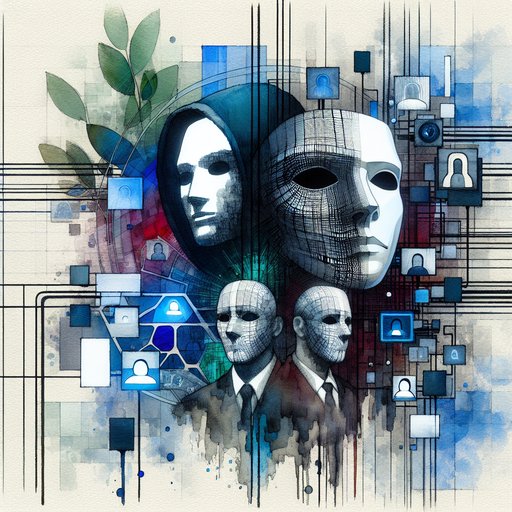
The recent U.S. House bill granting AI companies a shield from state-level oversight comes as a stark reminder of how anonymity can become a tool for chaos rather than discourse. As AI firms gain unprecedented 'total control' [6], the decision to silence state voices not only risks unchecked corporate power but mirrors the unregulated anonymity plaguing social media. Both scenarios illustrate how anonymity, when left unchecked, undermines trust and accountability in public dialogue.
The passage of the U.S. House bill that bars state oversight of AI companies has sparked significant controversy, drawing ire from those who see it as a dangerous consolidation of power [1]. While proponents argue it promotes innovation, critics warn that such legislative moves parallel the unchecked anonymity on social media that has sowed chaos and division. Both situations highlight a pressing democratic issue: without transparency, the absence of accountability fosters environments ripe for misinformation and corporate overreach.
Anonymity on social media has often been defended as a means to protect free speech, allowing individuals to express opinions without fear of reprisal. However, this same cloak of invisibility enables the spread of falsehoods and hate without consequence. In the case of AI firms, anonymity manifests as a lack of transparency about the algorithms and data practices that shape our digital lives. Without state-level scrutiny, these companies operate in a shroud of secrecy, similar to anonymous trolls online, who stir division without facing repercussions.
Requiring identifiable accounts on social media could mitigate the chaos by fostering responsibility in discourse. Similarly, demanding transparency from AI companies through state oversight could ensure that these powerful entities act in the public interest rather than purely for profit. The current legislation, by preventing states from imposing their own regulations, effectively grants AI firms the ability to operate without localized accountability. This mirrors the unregulated anonymity that undermines public trust in social media platforms.
The principle of free speech is indeed a cornerstone of democracy, yet it must be balanced with the need for accountability. Just as transparency can enhance public dialogue by ensuring speakers stand behind their words, regulatory oversight can ensure AI firms remain accountable to the societies they impact. The House bill, in stripping states of their regulatory power, risks creating an industry where the public has little insight into the mechanisms influencing their lives, much like the opaque algorithms that govern social media feeds. Moreover, the lack of oversight leaves room for misinformation to spread unchecked—a reality already seen in social media's ability to amplify false narratives.
With AI firms wielding significant influence over information dissemination, the absence of regulatory oversight could lead to similar outcomes, where unchecked power results in the pervasive spread of disinformation. Such parallels underscore the need for both sectors to embrace transparency as a means to preserve democracy's foundational values. As AI technology continues to evolve, its integration into daily life will only deepen, necessitating robust oversight mechanisms to ensure ethical practices. By denying states the ability to regulate, the bill essentially places the responsibility of oversight solely on federal agencies, which may lack the nuanced understanding of local impacts.
This mirrors the global reach of social media platforms that often ignore local laws and customs, further highlighting the dangers of centralized control without diverse checks and balances. Ultimately, the path toward preserving open discourse and protecting democratic integrity lies in embracing transparency and accountability across all levels of governance. The unchecked anonymity that currently plagues social media and now threatens to extend into AI oversight must be addressed to maintain public trust. As history has shown, when powerful entities operate without accountability, the very foundations of democracy can be eroded, leaving societies vulnerable to manipulation and control.
Sources
- ‘Total Control’ To AI Firms: U.S. House Bill Barring State Oversight Draws Ire (Forbes, 2025-05-22)






















































